OFFERING HOSTED EXCHANGE; WHAT IT TAKES
Enterprises worldwide are moving from their conventional silo based systems towards Unified Platforms. Emails, Calendars, Instant Messaging, Task Lists and others forms of text messaging are moving onto unified messaging platforms. Different document repositories including all forms of content are moving away from individual repositories towards platforms allowing collaborative authoring and storage.
At a more advanced stage, enterprises are even unifying their communications with other forms of messaging and collaboration including phone lines, voice mails and enterprise PBX systems to go towards a fully unified communication system. Highly automated enterprises have moved their CRM, Sales & Marketing Processes and the Resulting Client & Customer Communications onto a unified platform as well. With the user interface moving onto smart phones and other devices, smart phone vendors are coming with integration applications to push messaging and communications onto their brand of smart phones. It has created a whole eco-system where applications, devices and networks are all working as one big unified system.
Microsoft is playing a significant role in this transformation with their Exchange suite of products. Microsoft Exchange is emerging as a leading unified messaging platform. Microsoft SharePoint remains one of the leading collaboration systems for the enterprises. Microsoft Lync or Microsoft Skype for Business is now playing a significant role as the unified communications platform for the enterprise.
When it comes to CRM, many enterprises choosing one of the above unified platforms are seeing value in moving their CRM Systems to Microsoft Dynamics as this allows further integration with other applications seamlessly. Smart phones like Blackberry, iPhone and Androids are coming with their interfaces to integrate with the suite. Microsoft itself is providing ActiveSync to sync together all this data coming from different sources and devices.
Previously the exclusive holy grail of internal IT departments of the enterprises, Microsoft is leading the way towards transformation of all this unified communications as a hosted service in the cloud.
HOSTED EXCHANGE: WHO IS IT FOR?
- It is a natural extension of business for the web hosts who have traditionally provided the Email services along with hosting websites.
- It is a lucrative new revenue opportunity for the Internet Access Service Providers who have handled companies’ internet access through different wired and wireless means.
- It is a lucrative revenue opportunity for Telcos (Telecommunication Companies) who have conventionally handled voice traffic but with smart phones booming everywhere, are very well poised to handle email and other unified messaging and communication needs of the same customers.
This white paper discusses what it takes to offer hosted exchange and elaborates on the important role of an Automation Control Panel that serves as the missing link between the MS Exchange Suite of Products and offering the MS Exchange as a service.
PRE-REQUISITES FOR OFFERING HOSTED EXCHANGE
HARDWARE
MS Exchange suite of products runs on Windows Server OS. The hardware and software can either be collocated at a data center or own premises. It could be kept in a private cloud or public cloud. It is also possible and very viable to just rent it from any Infrastructure provider out there who also takes care of the availability and the SLAs relating to that.
LICENSES
Microsoft through its SPLA (Service Provider License Agreement) makes it easy for Service Providers to start small and then pay as they grow and only pay for licenses actually used in production. The second thing to be arranged is an SPLA relationship with Microsoft.
OFFER HOSTED EXCHANGE AS A SERVICE
The third step is a combination of multiple requirements. They are all fulfilled by an Automation Control Panel, purpose built to enable a product to be offered as a Service. The rest of the white paper discusses the roles and requirements of such a control panel.
ROLE OF A CONTROL PANEL TO PROVIDE HOSTED EXCHANGE AS A SERVICE
Once your infrastructure and the platform for offering Hosted Exchange is in place, you need many different products which are all combined within an automation control panel. They are:
- Multi-Tenancy Interface
- Automatic Provisioning and Sign-up
- Customer Self-Serve portal
- Plan and Quota Manager
- Service Management Platform
- Billing and Payments
- Channel Support Interfaces
MULTI-TENANCY INTERFACE
Microsoft Exchange suite of products out of the box are designed to run for a single enterprise. The requirement for service providers is to be able to share the same installations of MS Exchange among multiple enterprises or ‘tenants’. The control panel provides the required layer of a ‘tenant’ which allows multiple enterprises to share the same infrastructure and platform for their own unified messaging or unified communications needs.
AUTOMATIC PROVISIONING AND SIGN-UP
Configuring a new instance of Exchange to offer services for a new enterprise need extensive and concerted provisioning of different resources within the Operating Systems, MS Exchange products, Active Directory and other places. Provisioning of MS Exchange resources require an orchestrated execution of provisioning work flows to be done correctly. Automation Control Panel comes bundled with all these work flows for Unified Messaging and Unified Communications setups. It comes with its own web based sign up process and it comes with APIs that allow integration with any other external order management or CRM system to take new orders and provision them accordingly.
CUSTOMER SELF-SERVE
Any hosted platform gives control to the end customers, so that they are able to self-serve themselves. This is not only required for reasons for efficiency, there are many other reasons where a Service Provider driven provisioning and management just cannot work. The requirement for self-serve is intense for Unified Messaging & Communication products where the total self-serve use cases run into hundreds, and customers want full control over their shared multi-tenant partition of the platform.
An Automation Control Panel provides full self-serve capability for the complete suite of unified messaging and communications products from Microsoft.
PLAN AND QUOTA MANAGER
Plan and Quota Manager is the ‘enforcement point’ of provisioning through self-serve. It makes sure that any requests for provisioning are within the bounds, set by the plan purchased by the customers and within the quotas extended to them against those subscriptions. It has to be flexible enough to get in-line with varying business and product management needs of the Service Providers.
Automation Control Panel provides such a plan manager along with quota manager and enforces it in real-time or near real-time as the needs may be. It can be integrated with the Service Provider’s order management system as well so that user can buy new plans on the fly when and if they run of quota.
SERVICE MANAGEMENT PLATFORM
Service Management is about suspending and resuming services of customers automatically as and when required based on their payment status. In a multi-tenant cloud based hosted offering, such automation is a key. It is important for such service management automation to be integrated behind a billing & payment system so that services for customers can be automatically suspended when needed and automatically resumed upon receiving payments.
An automation control panel provides full service management including suspension and resumption of services based on cues from the billing system as well as other advanced use cases like service degradation, service purging and others.
BILLING AND PAYMENTS
A Billing system provides periodic billing of subscription based services and allows the Service Provider to define their plans and packages & periodic charges. It also has an integrated payment processing system to process customer’s payments through different on-file payment methods or through self-serve portals where customers can pay manually.
Automation Control Panel should be able to integrate with any external and existing billing system or it should have a billing system of its own that does the job. The additional job of the billing system is to send cues to the Service Management Platform for automatic suspension of services upon payment failures and then automatic resumption of services upon payment receipts and so on.
CHANNEL SUPPORT PROVIDER
If the Service Providers wants to delegate the role of actual sales to other channel partners or resellers, a self-serve layer for such channel partners is needed where they can order new sales and do basic self-serve on them. Automation Control Panel provides such support and makes sure that the back end infrastructure can be shared between & among all the channel sales providers or resellers. It also provides fully private labeled self-serve to the customers of channel partners where their customers know of the reseller as the primary service provider. This allows Service Providers to focus on their core competence of providing and maintaining networks and delegate sales roles to resellers.
HOSTING CONTROLLER – AN AUTOMATION CONTROL PANEL
Hosting Controller is one full service Automation Control Panel for MS Exchange suite of products. Used by more than 40 service providers worldwide. It offers complete automation and all the above mentioned use cases. In essence, it is the missing link between what Microsoft products have and what offering them as a service requires. Hosting Controller is Microsoft Partner with competency as an “ISV” and “Software Development” and one of only few Control Panel in the industry that is officially validated by Microsoft for Exchange 2010 and 2013 http://x.co/exchg. Hosting Controller is also Microsoft Planning Services Official Partner for Lync and Exchange Deployment Planning Services Engagements.
Hosting Controller provides a complete automation control panel for the full range of Microsoft Enterprise products including:
Microsoft Exchange Server
Microsoft SharePoint Server
Microsoft Skype for Business (Lync)
Microsoft Dynamics CRM
Microsoft Active Sync and Blackberry Enterprise Server
AUTOMATION INCLUDES
MULTI-TENANCY INTERFACE
Hosting Controller provides a full multi-tenancy layer on top of standard Microsoft Exchange suite of products. Each tenant is separately provisioned in its separate sandbox and remains separate for all processes of service usage, collaboration, provisioning and self-serve.

AUTOMATIC PROVISIONING AND SIGN-UP
Hosting Controller comes out of the box with detailed provisioning work flows implemented for the full suite of products. Based on commands from any Order Management system, it executes complete workflows and does provisioning of all related servers and resources.
CUSTOMER SELF-SERVE PORTAL
It provides a customer self-serve portal for the full suite. The self-serve for enterprise applications is a collection of hundreds of use cases all driven through a user friendly GUI. On a multi-tenant environment, all tenants are isolated from other tenants sharing the same platform & servers and are only allowed to do their self-serve tasks within their individual sandboxes.
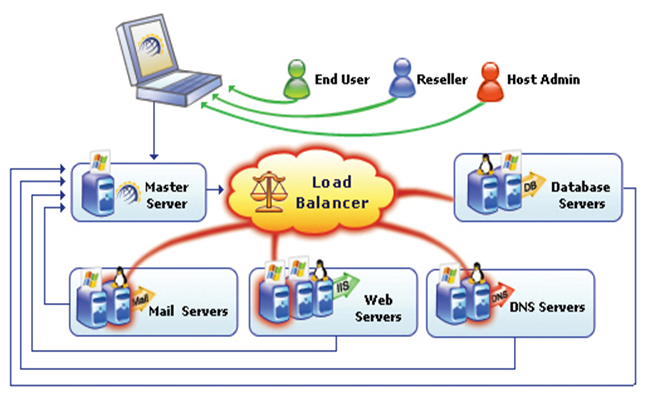
PLAN AND QUOTA MANAGER
Hosting Controller comes with a detailed Plan and Quota manager that allows any Service Provider to align his business and products needs with the technology by defining plans and packages for the service. It also allows Service Provider to define multiple service and product offerings that customers can purchase or subscribe to and mention the quotas of individual resources available under those plans. The quota manager is the enforcement point that enforces all subscribed quotas while doing initial provisioning through order management system or regular customer provisioning through his self-serve portal.
SERVICE MANAGEMENT PLATFORM
Hosting Controller provides APIs and interfaces that can be used by any external billing system to manage the service automatically. Services are suspended when ordered and are resumed again when ordered without loss of data for the customer.
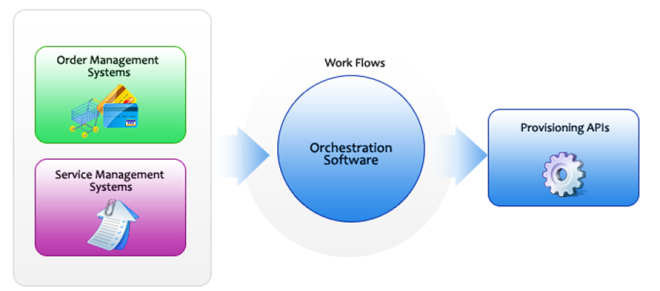
BILLING AND PAYMENTS
Hosting Controller is primarily an automation control panel. It has the capability to integrate with any external third party billing and payments solution. It comes pre-integrated with some of industry’s common billing systems but in addition to interfaces for external systems, it has a complete billing and payment processing system built-in that can be used by any Service Provider for basic billing.
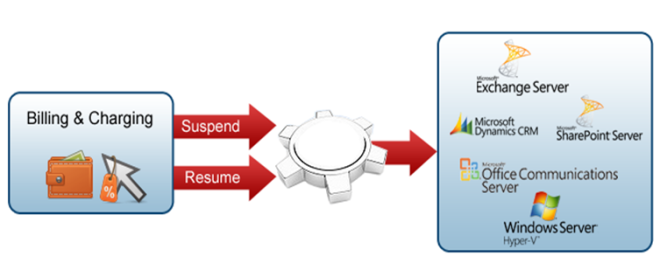
CHANNEL SUPPORT PROVIDER
Hosting Controller allows a Service Provider to delegate the task of selling to other channel partners or resellers. Resellers have their own self-serve portal.
DEPLOYMENT
Depending on the scale and business model of the Service Provider, Hosting Controller is deployed on the CAS server and controls the MBX Servers of Microsoft Exchange as shown below. For SharePoint and other servers, one instance of Hosting Controller is deployed on each server.
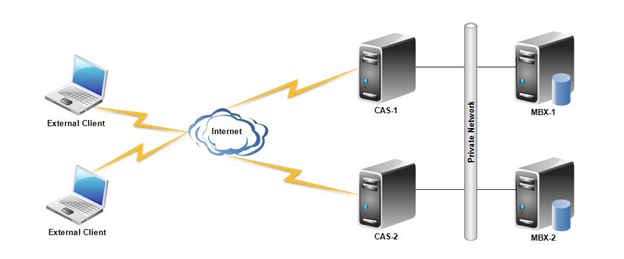
SUMMARY
Microsoft Exchange with related products today offers one of the most complete Enterprise Application Suites for Unified Messaging, Collaboration and Communications. SaaS providers, Internet access service providers, telecoms and all other types of communication service providers can benefit from this booming market by offering it as a hosted service.
The number of enterprise seats using hosted Exchange Server is projected to grow from 1% of seats in 2007 to 20% seats in 2012, according to a report from Gartner Inc.
While the Service Provider Market is growing at a CAGR of 15%, Microsoft exchange is growing at 35%. This has provided a big opportunity for Service Providers as well as other carriers to offer hosted exchange. Hosting Controller is an all-in-one product that allows any Service Provider to offer Microsoft Exchange and related products as a hosted service.
ABOUT HOSTING CONTROLLER
Founded in 1999, Hosting Controller is a complete hosting automation solution for web hosts and cloud based service providers. It allows them to manage both Windows & Linux servers simultaneously as part of a single cluster. In addition to shared hosts, HC offers a full solution suite for hosted Enterprise Applications creating a shared multi-tenant environment for automatic provisioning of Exchange 2016/2013, BlackBerry, SharePoint, Skype for Business (Lync) and Dynamics CRM. It also offers a full automation solution for Infrastructure and Virtualization providers offering virtualized partitions on both Windows and Linux based servers through Hyper-V technology for Windows & Xen Hypervisor technology for Linux!
Hosting Controller Inc. is based in Ontario, Canada and has more than 5,000 customers in 125 countries worldwide.
See more details on https://HostingController.com


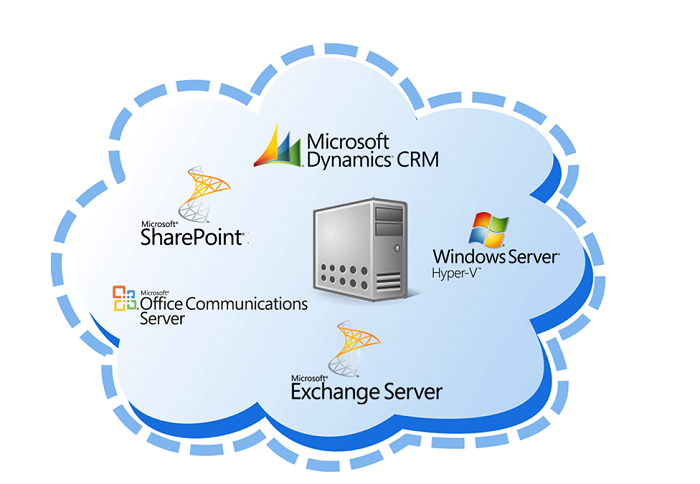




Post a Comment